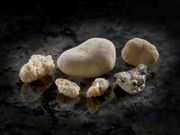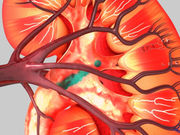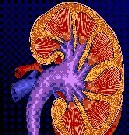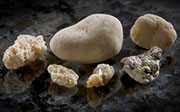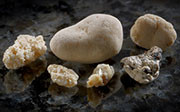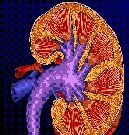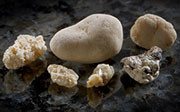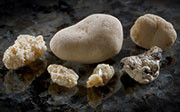Tag: Kidney Stones
Medical Expulsive Therapy Underused for Ureteral Stones
Patients treated with medical expulsive therapy achieve spontaneous passage more quickly
Only Half of Kidney Stone Patients Compliant With Tx
Compliant patients have fewer ER visits, hospitalizations, stone disease surgeries
Incidence of Nephrolithiasis Rising in Teens, Blacks
Researchers also report growing number of cases among women and children
Stone Removal Helps Half of Patients With Recurrent UTI
Patients in study had nonobstructive renal stones; black race, HTN tied to higher recurrence risk
Shorter Antibiotic Prophylaxis Doesn’t Raise Infection Rates
Findings based upon ≤24 hours versus six days of antibiotics with percutaneous nephrolithotomy
Tamsulosin Could Help Passage of Larger Kidney Stones
Especially helpful with larger stones, while smaller ones may pass on their own
Extracorporeal Shock Wave Lithotripsy Best at 90 Pulses/Min
Difference in outcomes due to patients with proximal and mid ureteral, not distal, stones
AUA: Delay to Surgery for Nephrolithiasis Ups Costs
Complications more likely to arise with surgical delay
One in Nine Needs Emergency Revisit for Kidney Stones
Access to urologic care, processes of care cut risk of repeat emergency encounters
Recurrent Kidney Stones Linked to Arterial Calcium Deposits
Patients might need closer monitoring for further signs of pending cardiovascular issues


